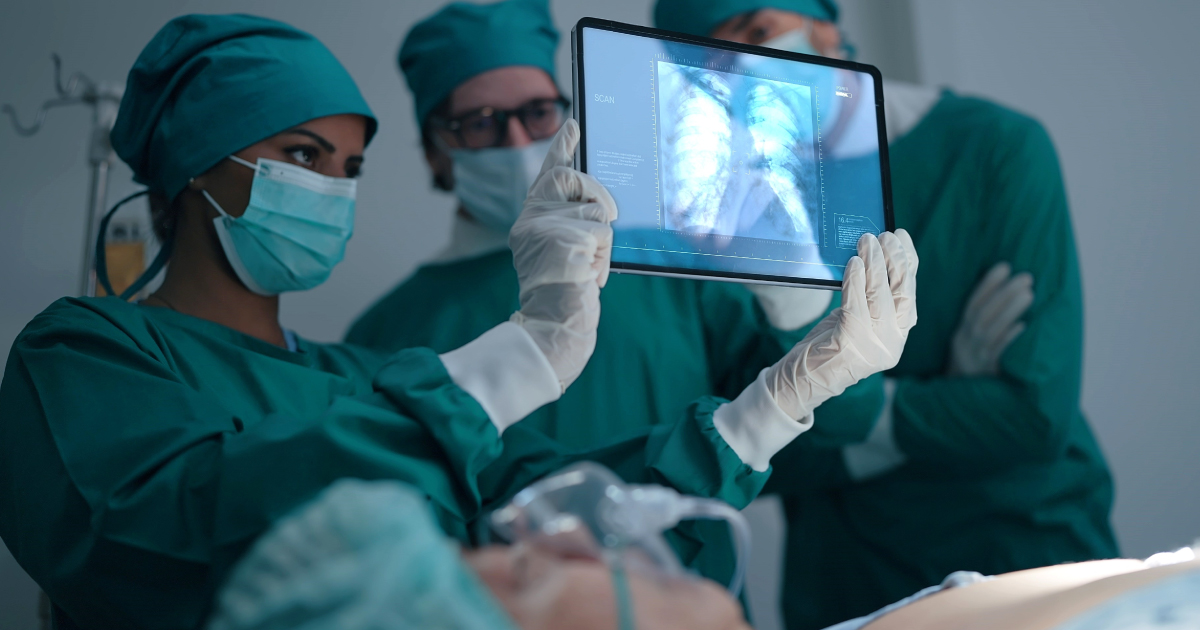5 Treatments to Stop Lung Cancer Before It Spreads

Lung cancer is another condition that affects many Thais. The most alarming fact is that it does not show any signs. By the time a patient notices, it has advanced already. Early treatment is quite detriment because not only will it stops the spread, but it may be curative and patients can continue to live with confidence.
Why Lung Cancer Is Silent
Within the lungs, there are many small sacs that help exchange oxygen. Once cancer develops in a small spot within the lungs, it may not be noticeable because the body can still exchange oxygen normally. Symptoms are evident when patients develop pneumonia or metastasis which leads to high rate of mortality.
Lung Cancer Symptoms
Although most patients do not show signs and only are diagnosed upon screening test, we can observe telltale signs such as coughs, bloody phlegm, chest pain or tightness, fatigue, tiredness, weight loss, hoarseness, lung infection, etc.
How Lung Cancer Is Diagnosed
Low-dose CT scan can be used to diagnose lung cancer. If a suspicious mass is observed, a biopsy can be collected for further differential diagnosis for lung cancer.

5 Treatments To Stop Lung Cancer
Current treatment options for lung cancer have advanced so that thoracoscopic surgery can be performed to remove only the affected lobe in the early stages. This will reduce complications and pain as well as speed up recovery. Patients who are diagnosed with stage 3 or 4 lung cancer can be treated with chemotherapy, targeted therapy, or immunotherapy in conjunction with radiation therapy.
- Thoracotomy is an open chest surgery from either the midline or the side of the body. Incisions may involved multiple muscles and a rib cage retractor is inserted to access the lungs. This method is more suitable for patients with a lung mass larger than 8 centimeters, patients who require an entire lobe removal, or patients who require complicated surgery to connect the vasculature. The size of the incision is about 15 – 20 centimeters in length and recovery time will be longer.
- Video Assisted Thoracoscopic Surgery (VATS) is suitable for patients with smaller mass that does not crowd nearby organ, which tends to be in stage 1 and 2. Small incisions are applied between the rib cages so that a scope can be inserted as well as surgical tools to remove the tumor mass. The scar will only be 4 – 5 centimeters long and less painful. Recovery will also be quicker.
- Uniportal VATS Surgery requires only one incision on the side of the body to insert surgical tools. Wedge resection, lobectomy, or pneumonectomy can be performed with this method. The scar is about 3.5 centimeters long and the procedure is less painful. Recovery is minimal.
- Chemotherapy is used to stop cancer cells from dividing so that the mass will decrease and stop it from spreading. It is suitable for patients who have stage 3 or 4 lung cancer that has spread to nearby organs. Surgery may also be required depending on medical assessment.
- Immunotherapy uses medication that will trigger the body’s immune response to get rid of the cancer cells. It is suitable for patients with stage 3 or 4 cancer. It can also be administered concurrently with chemotherapy, radiation therapy, or surgery as recommended by by the oncologist.
Pre-surgery Preparation
Getting an overview of Enhanced Recovery After Surgery (ERAS) process is important for patients prior to surgery. Starting with understanding lung cancer, therapy to reduce cigarette smoking prior to surgery, physical therapy during surgery and after surgery will help patients recover quicker. They can sit up and resume their lives sooner as well as reduce the risk of complications from surgery and get good results.
What Lung Cancer Patients Should Know
The sooner lung cancer is discovered, the higher the chance of a cure and survival is much better than patients who are diagnosed in advanced stages. Patients who have good health without any other pre-existing conditions or unexplained weight loss can have better outcome than patients who have other health problem. Furthermore, treatment with medical oncologist at a hospital that is equipped with the latest medical technology will help increase the chance of a cure and better quality of everyday life.
Thoracoscopic Surgeon
Dr. Sira Laohathai is a thoracic surgeon specialized in thoracoscopic surgery at Bangkok Heart Hospital.
Please click here to make an appointment.
Hospital Specialized in Thoracoscopic Surgery
Bangkok Heart Hospital is equipped to perform thoracoscopic surgery by a team of experienced multidisciplinary medical specialists and cutting-edge technology. We are ready to nurse patients back to good quality of life.
